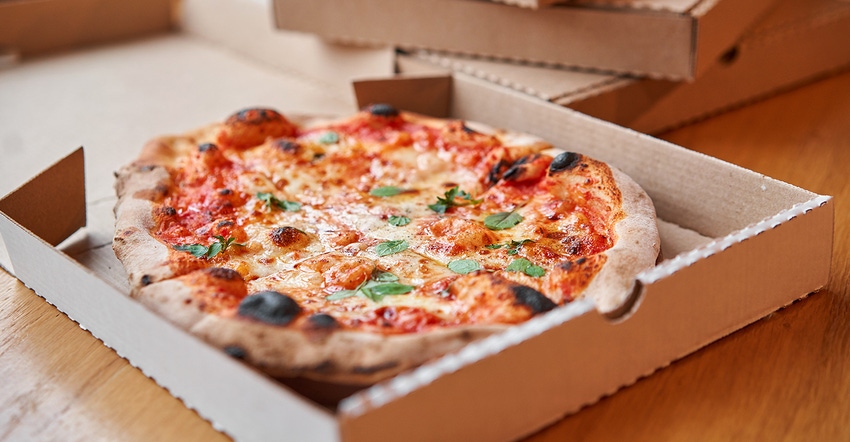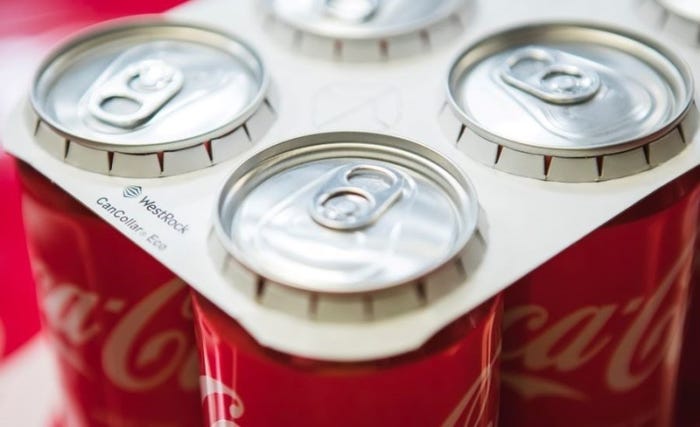Collaborating Our Way Toward a More Circular Economy
WestRock highlights how collaboration and collectivity can enable packaging change for a sustainably healthier environment.
November 9, 2020

From takeout food to online shopping, more people are leveraging the safety and convenience of ordering online because of the COVID-19 pandemic. As unprecedented as this moment in time is, consumers’ shifting purchasing habits have a silver lining—people are paying more attention to the sustainability of product packaging. While the pandemic has compounded an environmental crisis, consumers are paying attention to issues of sustainability in a different way and prioritizing the need for greater packaging sustainability. As we navigate this “new normal,” our awareness of just how much we are consuming has sharpened our focus on the need to advance toward a circular economy for a more sustainable world.
In navigating the road to greater sustainability in packaging, there is no one-size-fits-all approach. Companies and customers must have access to a variety of solutions and be provided with multiple opportunities to make more sustainable choices.
How do we gain traction on our journey toward a more circular economy? In a word: collaboration.
Cross-sector alliances and interconnected partnerships are not only crucial, but pivotal in the push for circularity. At WestRock, we practice the power of collaborative partnership as an integral part of our sustainability philosophy. This means having ongoing conversations about products, processes and how we can make better choices for people, for communities and for the planet.
In September 2020 during Climate Week, WestRock hosted a forum to explore the trends and innovations in sustainable packaging, moderated by the GreenBiz Group. We joined several of our industry and NGO partners virtually to discuss just how companies can drive sustainable change through collaboration. These included The Coca-Cola Company, The Procter & Gamble Company (P&G), GreenBlue and the Sustainable Packaging Coalition. One of the most important things we discussed was how having collaborative conversations that actively involve multiple stakeholders—from the people sourcing materials, to those designing the package, to those responsible for collections—is one of the most powerful ways to ignite truly thoughtful, comprehensive, sustainable strategies.
Both consumers and collaboration are driving sustainable change. For instance, when consumers have questions, that can be a powerful motivator to collaborate for better clarity and better circularity. For proof of the power of this type of collaboration, look no further than your empty, greasy pizza box. Many Americans assumed that their pizza boxes were not recyclable. To reduce confusion and encourage Americans to recycle their pizza boxes, in 2019, WestRock commissioned Resource Recycling Systems (RSS) to conduct a study of the availability of recycling programs in the U.S. for pizza boxes. To further encourage Americans to learn more, WestRock, in partnership with Domino’s, launched recycling.dominos.com –– a hub of information about proper pizza box recycling.
Myth-busting with sustainable benefits.
WestRock also recently conducted a research study that evaluated the impact of typical amounts of grease and residual cheese. The study, which was reviewed and endorsed by member companies of the American Forest & Paper Association, concluded normal amounts of grease and residual cheese do not impact the quality of the recycled fibers. In short: yes, you can recycle that pizza box! Domino’s, American Forest & Paper Association and WestRock worked together to dispel a myth and get more consumers recycling more of their pizza boxes. Considering that each year, about 3 billion pizza boxes — equivalent to 600,000 tons of corrugated board— enter the market. Dispelling this particular myth can have measurable impact.

Nailing down where consumer interest lies can also prove important in assessing the lifecycle of sustainable packaging. For Coca-Cola Europe, partnering with WestRock to replace its plastic six-pack rings with fiber based CanCollars was a simple, yet effective, recyclable option fueled by the wants and perceived needs of the consumer. Homing in on what companies can do currently, with the resources they already have available, and meeting consumers where they are is a step in the right direction toward a more sustainable future. WestRock has also partnered with CPG companies to innovate all-paper, plastic-free deodorant packaging solutions — the first fiber deodorant packaging of its kind.
The journey to sustainability requires collaboration, innovation, but also a celebration of incremental successes. By applauding progress – however small – we can encourage a commitment to ongoing, long-lasting, change. Day-to-day improvements pave the way for companies to achieve long-term goals.
Continuing to prioritize innovating new solutions, improving recyclability and collection and increasing awareness – from sourcing to recycling – is vital to broader sustainability success. But we cannot do it alone. Through WestRock’s virtual panel during Climate Week, we were able to discuss not only with each other, but with an audience of consumers and both sustainability and industry experts, just how much we can achieve when working together. It’s critical that we continue having these conversations—individually and collectively, privately and through interactive forums. When we share our sustainability challenges as well as our forward-thinking visions and goals for the future, we share a commitment to collaborating our way toward a more circular economy.
About
Patrick E. Lindner is chief innovation officer and president of WestRock’s Consumer Packaging business, and is responsible for the company’s sustainability efforts globally. He previously served as chief operating officer for W.L. Gore & Associates, and before that served in various leadership roles with E. I. Du Pont De Nemours and Company, including as President – DuPont Performance Materials and President – DuPont Performance Polymers. He has a bachelor's degree in chemistry from Hamilton College and a Doctor of Philosophy (PhD) in chemistry from Dartmouth College.
About the Author(s)
You May Also Like




